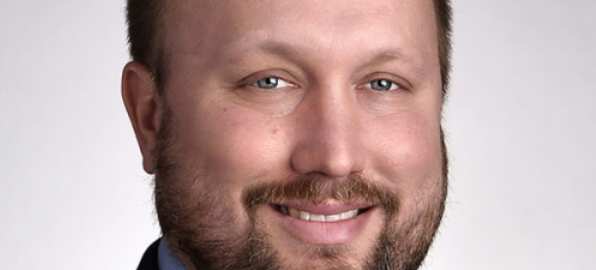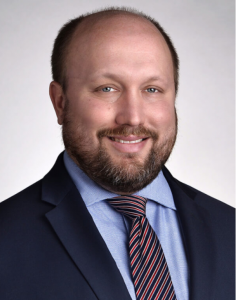
Community Projects Funding Round 2: Federal Money for Local Projects
Congressional passage of the Federal Fiscal Year 2022 $1.5 billion omnibus spending package earlier this month marked the return of congressionally designated funding, also known as “earmarks,” for the first time in more than a decade. Community Projects Funding, allowed under Conference Rules that were altered by the 117th Congress to remove a previous ban, supports grants requested by state and local governments and non-profit organizations. The Senate kept its rule banning earmarks in place but agreed it was non-binding.
Projects lined out in the FFY22 package were selected for funding by members of the House and Senate following an application process initiated about a year ago. A new process is underway for Federal Fiscal Year 2023.
Community Projects Funding now incorporates a number of transparency provisions implemented following earmark scandals of the early 2000s that ultimately led to the ban. Safeguards include requiring members of Congress to disclose funding requests on their websites, release of a list of approved projects by the Appropriations Committee and certification by members that neither they nor any immediate family member have a “financial interest in the projects they request.” You can find a summary of reforms here: https://bit.ly/3LgNE1l
This is a great opportunity for non-profits and governments to secure funding needed for key projects. I have helped get earmark funding for hospitals, municipalities and community based not-for-profits for specialized diagnostic equipment and electronic management systems, as well as Main Street upgrades, water and sewer improvements and other transportation system investments.
Reviewers of past earmark project lists will note that private businesses had been eligible for funding, and many received grants. The disqualification of for-profit businesses under the Community Project Funding program increases the availability of funds for governments and non-profits.
Community Projects Funding announced by Senators Gillibrand and Schumer, many of which were awarded based on applications from local members of Congress from New York State include:
- $303,000 for City of Salamanca Bipartisan Funding Package: this funding will allow the city to upgrade HVAC equipment and water conservation and conduct weatherization upgrades of the City’s municipal building.
- $2.5 million for City of Cohoes Drinking Water Treatment Plant Rehabilitation Project: funding to rehabilitate the City of Cohoes’s aging drinking water treatment facilities
- $500,000 for the Herkimer County Broadband Expansion: funding to expand high-speed broadband access to communities located in the norther part of Herkimer County. In Herkimer County, it is estimated that over 3,900 houses and businesses,6.4% of the population, lack access to modern internet services.
- $800,000 for the Greater Ithaca Activities Center (GIAC): funding to transform the Immaculate Conception School gymnasium to house a teen program, indoor recreation activities, expand local job training, and micro-entrepreneurship business programs.
- $400,000 for the Center for Performing and Visual Arts: funding to be used towards the construction of the Center for Performing and Visual Arts in Northeast Rochester. Once completed, the center will be a $3.3 million, 11,000 square-foot facility, home to world-class music, dance, theater, and educational opportunities for families and children throughout Rochester, free of charge.
- $1.5 million for The Port of Albany South End Workforce Training Center: funding to create a Workforce Training Center in the City of Albany’s South End. This center will be specifically designed to help prepare individuals in high school and 18 years or older, by reducing barriers that too often hold back students and workers from enrolling and completing post-secondary education, such as expanding access to transportation, childcare, academic readiness, and affordable education.
- $1 million to support for the Town of Clarkstown for the West Nyack Revitalization project
- $1.75 million for the city of Newburgh to replace the Lake Street bridge
- $83 million in funding for the OMEGA Laser Facility at University of Rochester Laboratory for Laser Energetics (LLE)
At Brown & Weinraub, we will be advising clients to consider requesting funds to fill gaps preventing them from pursuing a project with broad community benefit. Organizations across New York have ready projects for which they have sought support through the NYS Consolidated Funding Application (CFA) influenced by the Regional Economic Development Councils. While state CFA funding is limited to capital projects, federal Community Project Funding is available to support operational costs.
It is good practice for non-profits and governments to seek support for projects they have already determined are needed and that have the potential to be sustained without continued grant support. Applicants should be prepared to quantify the benefits of federal investment in terms such as number of New Yorkers served, increased access to services, long term benefits of investment, protection of community assets, improved security and potential use of study results, among others. Given the checkered history of earmarks, applicants also must ensure that projects can be completed and will stand up to public scrutiny.
Community Project Funding is a welcome, revised approach to involving members of Congress – who know the area they represent and the needs of constituents best – in the distribution of federal taxpayer dollars. We should all work to help New York get its fair share and secure funding for essential projects with broad benefits.
Alexander L. Betke is an attorney and registered lobbyist focusing his practice on Government Relations and Municipal Law, a unique combination of legal concentrations allowing him to meet clients’ needs at all levels of government and to provide innovative resolutions to a variety of legal challenges. Having served as Town Supervisor in New York’s Hudson Valley, Alex is well-versed in local issues, and has strong relationships with elected officials throughout the state and those serving at the federal level. Alex has successfully secured passage, averted advancement and amended numerous legislative initiatives.

